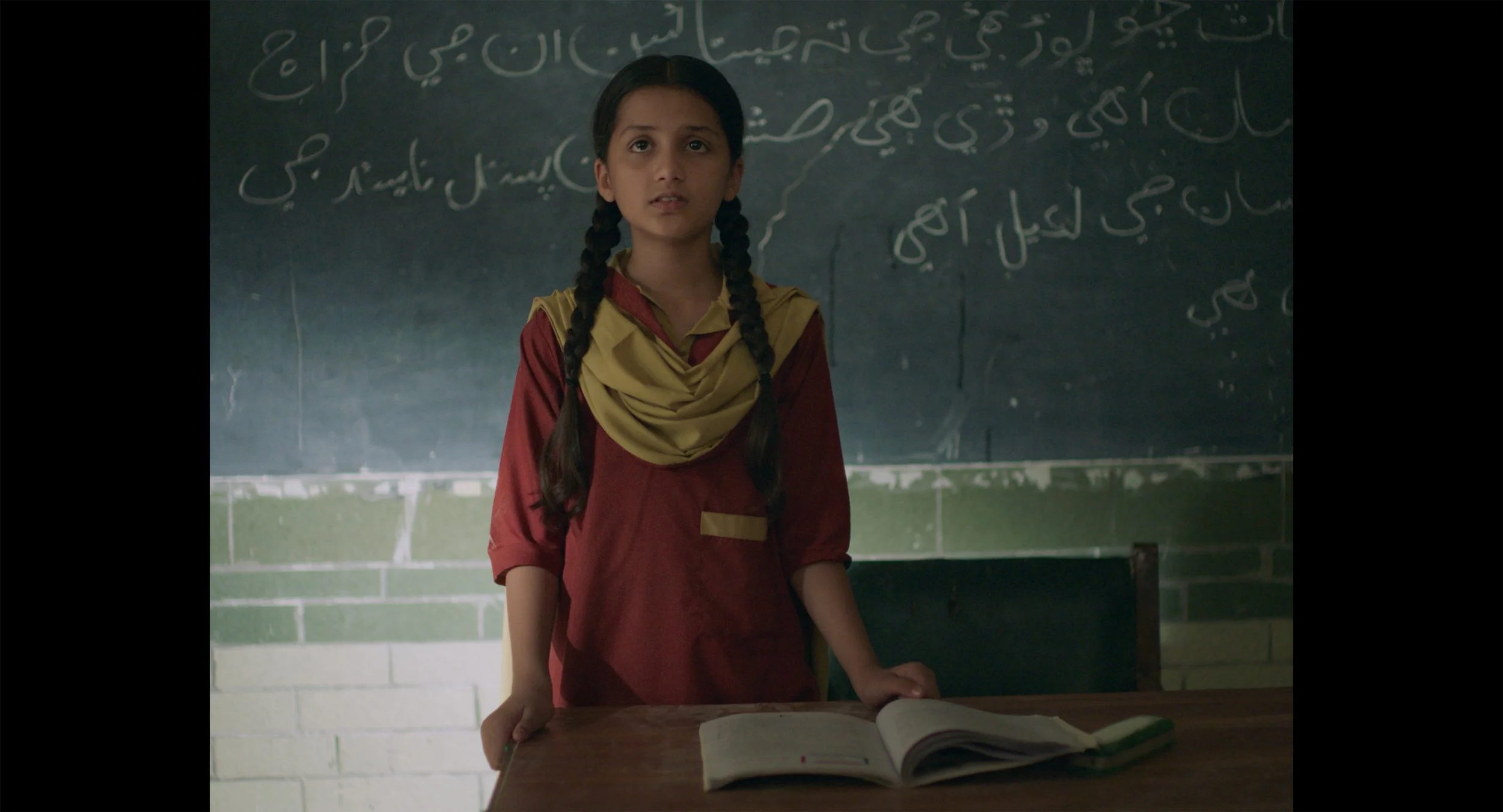TIFF25: “Ghost School” Looks at Corruption Through a Child’s Eyes
This review was originally published on Film Obsessive.
If you asked, most kids would say they don’t like school. Understandably, as there are a lot of aspects of it to deeply dislike. Tests and quizzes can dampen anyone’s spirit, and many people decades out of school still have the nightmare of sleeping through an exam. The premise of the 2025 Toronto International Film Festival world-premiering Ghost School is every kid’s dream. What begins as a simple story about a school closing morphs into a larger exploration of the state of public education in Pakistan.
In Ghost School, the only school in the village has been shut down overnight and without warning. When Rabia (Nazualiya Arsalan) arrives at the schoolyard in the morning, she’s stunned to find that the gate is closed and she and her fellow students are being turned away. She’s told by the police officers that the school has been closed because of spirits called Jinns. This is not the first school that has fallen victim to a Jinn. The boys at her school are being sent to a private school in the next town over. Since it’s boys only, Rabia is left without a place to learn. She spends the day wandering through town and talking to her fellow villagers, learning as much as she would during a day of school, but through different, unexpected teachers.
When you talk about the education system of a country, you have to take into consideration that availability varies throughout the nation. In Pakistan, there are states with 96% literacy rates and other parts of the country with 23%. When you break it down even more, there are areas of the country where the female literacy rate is 9.5%. This is a nightmare for a young girl as precocious as Rabia. Where some boys are annoyed that they still have to go to school when the local one closes, Rabia is desperate to have the same opportunity they have. Kids who wake up in the morning excited to go to school should have access and encouragement to do so. It’s through school that we’re presented with ideas that can expand our minds and better the world around us. When Rabia is deprived of that, what are we losing by not allowing her to learn?
courtesy of TIFF
Writer/director Seemab Gul has made both narrative and documentary works. This experience allows Ghost School to blur the lines of fact and fiction. There are elements of the supernatural that make it clear we’re not watching a documentary, but then there are moments that feel they couldn’t possibly be scripted. That we are merely passengers on Rabia’s journey through her village. Ghost School is meandering in the best way. A road-trip flick that never leaves the village, but gives the audience the same experience. Rabia has a series of conversations around town about life and, inevitably, school. She asks if these people finished school and how they liked it, and she gets a wide variety of answers. Some that align with how she feels and others that do not. Such is life, though, and it’s in the in-between that we’re forced to find the rules to build our society.
Ghost School ends in a hopeful manner, but one that doesn’t feel like a triumphant win. The inherent problem of Rabia’s school closing isn’t solved. She’s merely found a bandage that will hold for a few years, if she’s lucky. It’s a stone-sinking way to end things, but also a means of being honest about the situation at hand. How could a ten-year-old girl with a caring-but-busy mother who’s trying to keep food on the table fix a problem that’s partially caused by corrupt law enforcement? It’s a monumental task that Rabia cannot yet fully understand, and Ghost School isn’t entirely about comprehending the depths of the corruption in her town. At the very least, it’s about recognizing how she can rebel in her own way.
support your local film critic!
~
support your local film critic! ~
Beyond the Cinerama Dome is run by one perpetually tired film critic
and her anxious emotional support chihuahua named Frankie.
Your kind donation means Frankie doesn’t need to get a job…yet.
Follow me on BlueSky, Instagram, Letterboxd, YouTube, & Facebook. Check out Movies with My Dad, a new podcast recorded on the car ride home from the movies.

